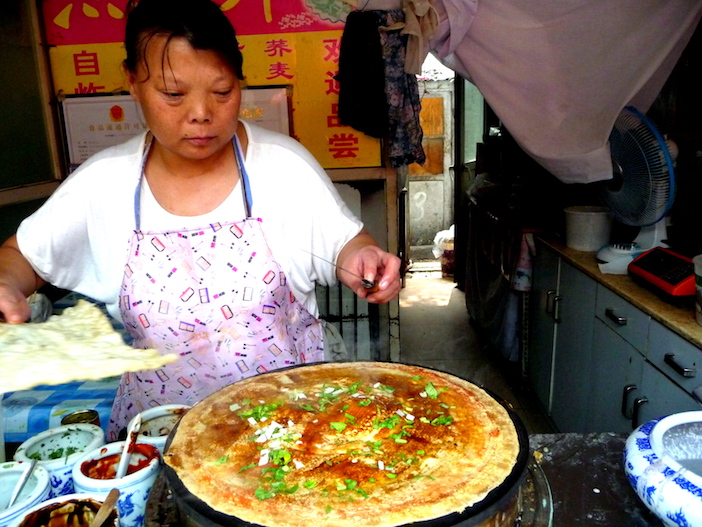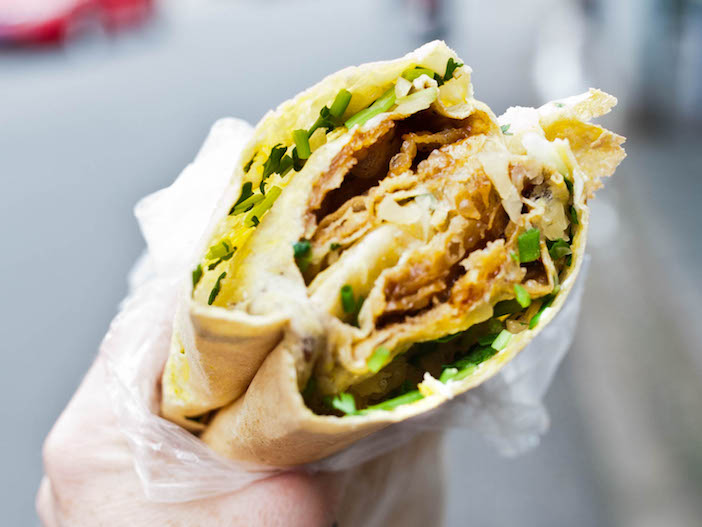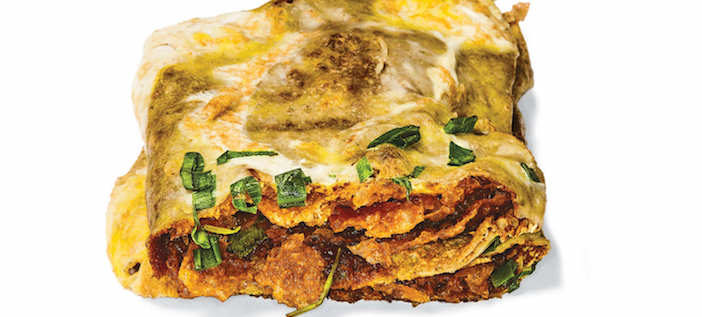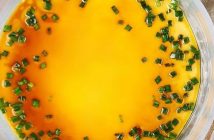China is notorious for food safety scandals, such as the 2008 melamine tainted milk scandal and the 2013 lamb meat scandal. I personally find local Chinese food to be quite questionable, as there are so many unknowns in terms of how it is produced and what exactly it contains.
Over the last year, I’ve fallen into the repeated pattern of buying cheap street food on the regular. The cycle starts when I don’t pack a lunch the night before, so the next day I just use my laziness as an excuse to order street food from the nearby shop down the street. All I have to do is call the number in my phone and within a mere five minutes, my order has arrived to the school’s guard house. My most popular order is jiānbing, known as the Chinese equivalent of a crêpe, made from wheat batter and filled with egg and spices. In fact, I order it so often that I’ve even labeled the number on my phone as ‘Jian Bing Lady.’ I have fallen into this unhealthy routine, one that has snowballed into a guilty pleasure that I barely have control over.

Every time I take a bite into a crisp jiānbing, I feel a pang of guilt. I know the main ingredients of a jiānbing, but I know little about the sanitation of the facilities in which it is cooked. For an extremely long time, I was always on the limbo about it. It was and still is delicious, but eventually I had to come to the truth that I’ve always wanted to ignore.
Jiānbing is saturated in oil, and gets greasier the further you eat into it. It may contain something called ‘gutter oil’, which has been a nation-wide scandal since the Chinese government began to crackdown on laws against selling it in 2010. However, authorities have not been able to eradicate this practice completely because of the significant number of unregulated food carts and shops all around the city.
Firstly, so called ‘slop’ is extracted from underground sewers. The people who collect it then filter out excess fluids, until they are left with an oily substance containing animal parts. This is then processed into what is known as black market oil, which is then purchased by Chinese restaurants at a very low price. Supposedly, one out of every 10 restaurants in China use this hazardous substance in their food.
Not only is it quite gross, but consuming gutter oil is also dangerous. Eating gutter oil causes nausea, diarrhea, and other gastrointestinal illnesses. Gutter oil also contains aflatoxin, which is a poisonous carcinogen found in molds of the animal parts. Worst case scenario, overconsumption of this carcinogen can lead to liver cancer.

As you can never really be 100% sure that the oil in street food is safe, there are actions you can take to ensure that what you buy from supermarkets is. It is best to buy oil from reputable stores that sell oil at a decent price. If the price is too low, it could be a clue that it is sourced from an unknown, which gives it a higher potential of being gutter oil. Unusual smells and a turbid appearance could also be taken as a warning.
So as it is okay to indulge in Beijing’s tasty street food every once in a while, it’s important to be mindful of what’s in it. Sometimes, it is better to be safe than sorry.
photos: nymag.com, seriouseats.com, world-flavor.com





2 Comments
Ugh…..how depressing…..very informative article….thank you for enlightening us to the reality of inexpensive Chinese food
Wow, how revealing and unfortunately depressing! Thank you for all of this helpful information!